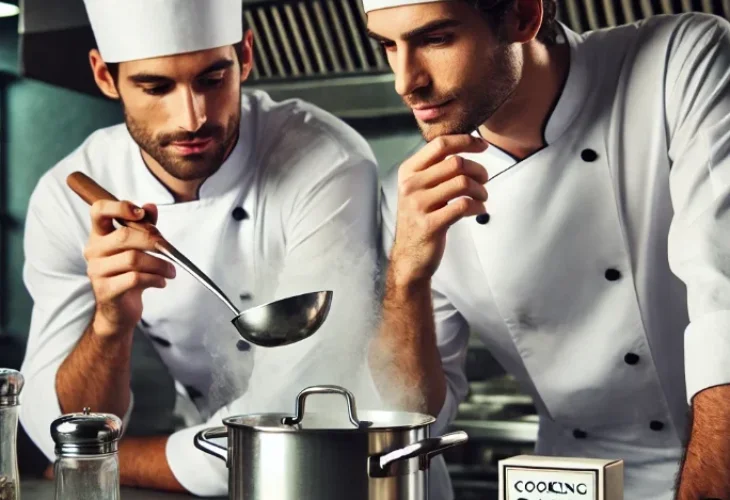The Secret Chefs Keep to Themselves: Salt at the End of Cooking
One of the great culinary secrets, now not much of a secret, is adding salt at the end of cooking. Here's why.

Many chefs know that salt changes the flavor when added at different stages of cooking. Therefore, the secret is to add a significant portion of the salt only at the end of cooking, when the dish is almost ready. This way, the salt preserves the natural flavors of the ingredients and doesn't fully dissolve in the liquid. The result is a more balanced and richer taste, with an emphasis on the main flavors.
The culinary world is a field that combines creativity, knowledge, and skill, often compared to art. Like artists in other fields, many chefs spend many years learning, practicing, and developing unique techniques, flavors, and working methods.
Within this process, "culinary secrets" are born - techniques, recipes, or special ingredients that make a dish unforgettable. But why do chefs choose to keep these secrets to themselves?
Maintaining Uniqueness and Competitive Advantage
In a competitive field like culinary arts, uniqueness is a valuable asset. Many restaurants struggle to stand out in a crowded market, and chefs know that a unique dish or original technique can be the difference between resounding success and mediocrity. Culinary secrets allow a chef to retain their professional identity and build a personal brand that attracts attention and customers.
Self-Investment
Many chefs view their secrets as the result of immense investment in time, resources, and effort. They may have developed a particular technique after years of experimentation, mistakes, and improvements. For them, revealing the secret might feel like sharing the fruit of their labor without receiving proper appreciation.
Fear of Imitation
In the modern era, where information is available at the click of a button, it's easier than ever to replicate ideas and spread them. Chefs who reveal their secrets risk having competing restaurants copy their dishes, sometimes without giving due credit. By keeping secrets, they protect their creativity from unfair exploitation.
Emotional and Professional Aspect
For many chefs, the kitchen is a second home, and their dishes express their personality and passion. Culinary secrets become an integral part of their professional identity, and they may see keeping them as a way to preserve their uniqueness and protect their art.
However, it's important to note that not all chefs see value in keeping secrets. Many of them happily share their knowledge through cookbooks, workshops, and even on social media. For them, sharing knowledge is a way to spread their love of culinary arts and influence the next generation of cooks and chefs.

